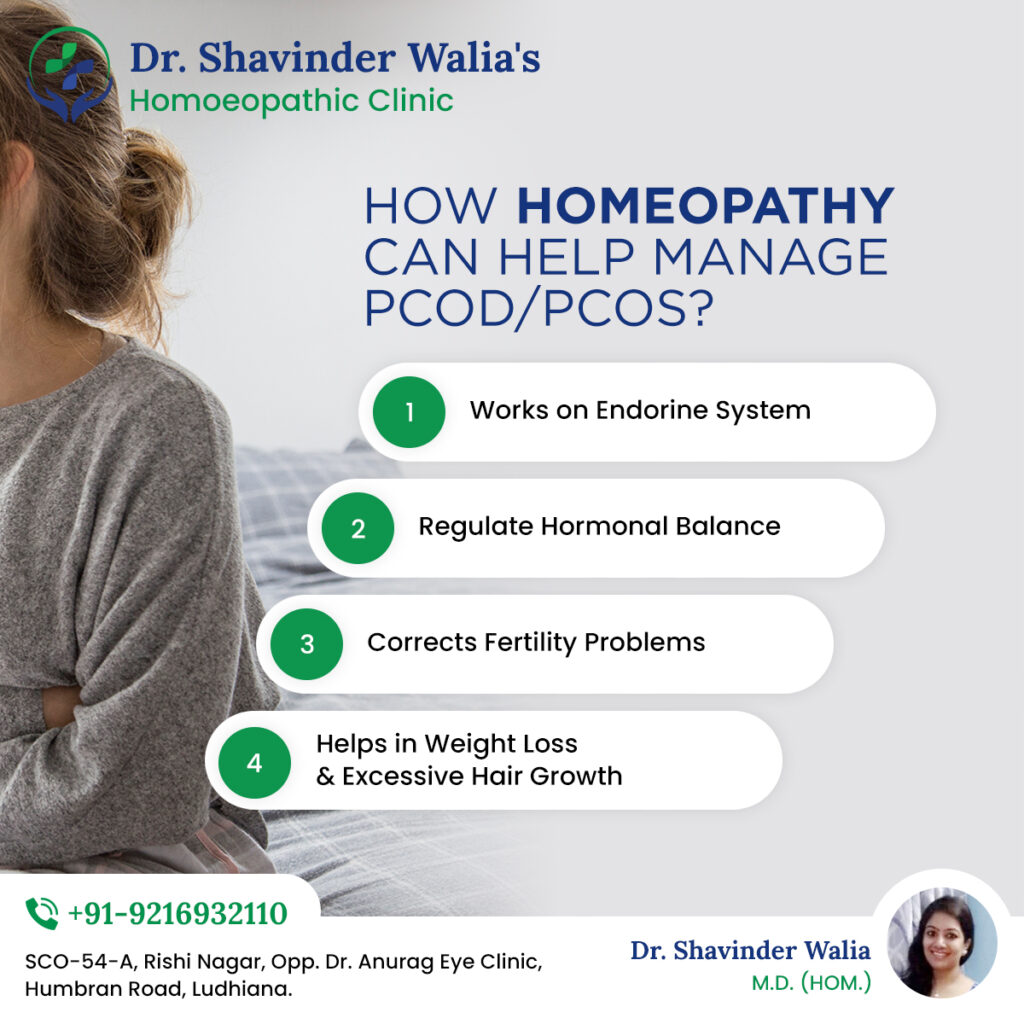
What is PCOD/PCOS?
Polycystic Ovarian Disease (PCOD), also known as Polycystic Ovary Syndrome (PCOS), is a common endocrine disorder affecting women of reproductive age. It is characterized by the presence of multiple cysts on the ovaries, hormonal imbalances, and various metabolic issues. Women with PCOD may experience irregular menstrual cycles, excessive hair growth (hirsutism), acne, obesity, and difficulty in conceiving.

Causes of PCOD
The exact cause of PCOD is not fully understood, but several factors contribute to its development:
1. Genetic Factors: A family history of PCOD can increase the risk of developing the condition.
2. Insulin Resistance: High levels of insulin can increase androgen production, leading to PCOD symptoms.
3. Hormonal Imbalances: Elevated levels of androgens (male hormones) can interfere with ovulation and cause cyst formation.
4. Inflammation: Chronic low-grade inflammation is also linked to higher androgen levels.

Conventional Treatment Options
Traditional treatments for PCOD focus on managing symptoms and may include:
1. Medications: Birth control pills, anti-androgens, and insulin-sensitizing drugs.
2. Lifestyle Changes: Diet and exercise modifications to manage weight and improve insulin sensitivity.
3. Fertility Treatments: For those seeking to conceive, options such as ovulation induction and assisted reproductive technologies may be recommended.

Homeopathic Management of PCOD
Homeopathy offers a holistic approach to managing PCOD by addressing the root causes and promoting overall well-being. Here are some key aspects of homeopathic management:
1. Individualized Treatment: Homeopathy treats the individual, not just the disease. Remedies are selected based on the patient’s unique symptoms, constitution, and emotional state.
2. Commonly Used Remedies:
– Pulsatilla: Useful for patients with irregular periods, scanty or delayed menstruation, and mood swings.
– Sepia: Often prescribed for women experiencing irregular cycles, a bearing-down sensation in the pelvic region, and irritability.
– Calcarea Carbonica: Beneficial for women with obesity, cold extremities, and excessive sweating.
– Lachesis: Indicated for patients with painful periods, sensitivity to touch, and hot flashes.
– Natrum Muriaticum: Suitable for those with suppressed emotions, irregular cycles, and a preference for salty foods.
3. Diet and Lifestyle: Homeopathy emphasizes the importance of a balanced diet, regular exercise, and stress management techniques. A diet rich in whole grains, fruits, vegetables, and lean proteins, coupled with regular physical activity, can help manage PCOD symptoms effectively.
4. Holistic Approach: Homeopathic practitioners often recommend complementary therapies such as yoga, meditation, and acupuncture to support the healing process.
Benefits of Homeopathy for PCOD
– Minimal Side Effects: Homeopathic remedies are natural and typically have few or no side effects.
– Holistic Healing: By addressing the physical, emotional, and mental aspects of health, homeopathy promotes overall well-being.
– Personalized Care: Each treatment plan is tailored to the individual’s specific needs and symptoms.
Conclusion
PCOD is a complex condition that requires a comprehensive and individualized approach to management. Homeopathy offers a safe, natural, permanent and effective option for those seeking relief from PCOD symptoms. By addressing the underlying causes and promoting holistic healing, homeopathy can help women with PCOD to get permanent solutions without using any artificial hormones . Always consult a qualified homeopathic practitioner for personalized treatment and guidance.



